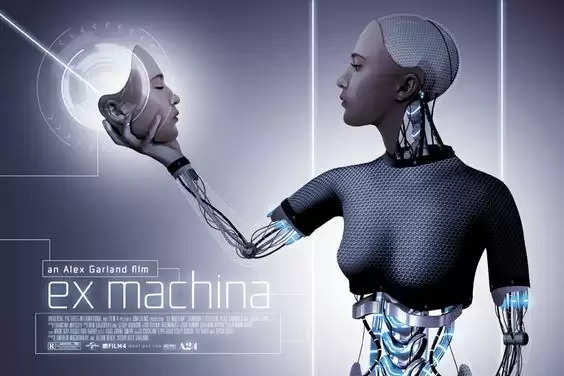Ex Machina Movie Review
Sep 10, 2024, 14:49 IST

Ex Machina premiered in 2014 and directed by Alex Garland making it one of the outstanding films under the gimmick Science Fiction Cinema. The film constructs a plot which raises the audience’s awareness of what it means to have an AI and what defines human construction and artificial intelligence.


Plot Summary
The movie revolves around Caleb Smith (Domhnall Gleeson) a young programmer who is given the chance to go to Nathan Bateman’s (Oscar Isaac) farmland for a week after beating numerous competitors in an intricate contest. When Caleb first gets to the isolated, futuristic house where Nathan Kilkoff lives, the director informs him that he must judge the intelligence of an intelligent being named Ava (Alicia Vikander) who is an artificial humanoid being. This despite the fact that as Caleb engages Ava in conversation he finds himself enthralled by her perceived self-consciousness and resourcefulness. The plot transforms into a very disturbing sci-fi thriller, where Caleb slowly discovers horrifying details of the motives behind the creation of the robot and the nature of Ava’s mind.
Themes and Analysis
In Ex Machina there are prominent metaphysical concerns presented such as individual consciousness and the ability to make choices as well as the moral concerns of artificial intelligence. The final topics of the best film are the questions concerns the true intention of Ava: is she really realized herself or just simulated herself? Through Ava’s conversations with Caleb, Garland manages to point at the idea that AI could be created, and the way it is treated raises many ethical questions.
The film also has themes of power and control as well as manipulation present in the movie. In several ways, Nathan can be considered as a prototype of a tech tycoon who has a great control over his products. They both induce a discussion concerning the reactivity inherent in the new technologies as well as the opportunities of misuse.
Performances and Direction
The lead character of Nathan is essayed wonderfully well by Oscar Isaac and Marlowe is morality twisted and filled with genius tone of a man who can turn right and wrong on its head. Domhnall Gleeson as Caleb’ displays both curiosity and innocence in his character and his transition into the psychological aspect of the movie balances well with tension. I must, however, point out that I really enjoyed Alicia Vikander as Ava because, on one hand, her character is rather seductive while, on the other hand, she embodies creepy element of cool AI portrayed in the plot as well.
Garland’s direction is very tactful and carefully planned, and that is why the space in the film feels oppressive and there are constant mentions of suffocating. The overall stage setup reflects the important motives in the story, it leaves the audience with an impression of isolation of the compound where Nathan lives and the duality of human and machine.
Conclusion
However, Ex Machina can be included not only as a science fiction film, which has a lot of features in common with the popular elliptic movies but as a philosophical movie that investigates the main human question. It raises biting questions as to the very nature and existence of consciousness, about the morality of this progressive technology advancement and the implications of developing beings that are far superior to the developers. On the basis of the robust acting, impressive and considerably thoughtful plot, and a dangerous narrative, Ex Machina is the movie that evokes people’s thoughts about the AI future and their role in it.



